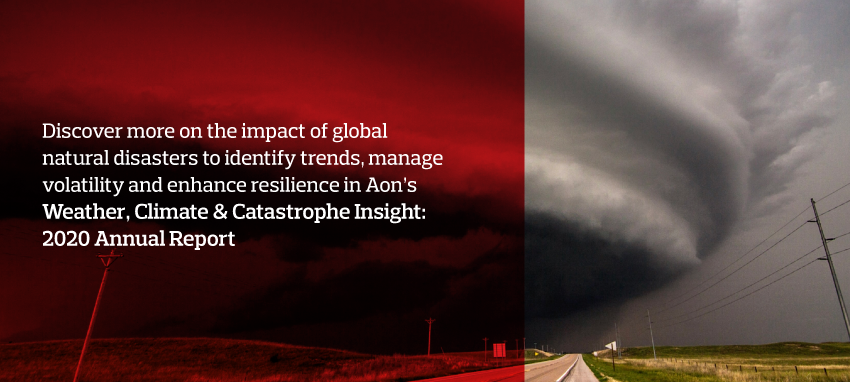Perhaps the biggest opportunity in the aftermath of 2020 surrounds the topic of risk management. COVID-19 highlighted areas which need considerable improvement around both planning for and anticipating various scenarios. The identification of risk is a critical first step. One valuable solution which can help invoke a risk planning strategy is around risk mapping. These tools can not only highlight the hazard risk down to a granular level (perhaps downscaled to a zipcode or CRESTA level), but also identify areas that may require improved building code requirement or enforcement. However, this type of solution is likely more realistic for more developed nations. Countries that face more widespread wealth inequality – meaning a higher portion of the local population living in poverty or with limited financial means – will require different methods to aid in risk management. Meanwhile, there are also opportunities to rethink access to capital with solutions such as catastrophe bonds or parametric insurance. This trigger-based approach can quickly bring an influx of fiscal aid into areas which are not able to depend on federal dollars.
While natural hazards cannot be eliminated, the physical and human risk can certainly be minimized or mitigated against by properly reducing vulnerability. By combining the most effective resources from government, insurance, urban planning, academia, emergency management, real estate, investment banking, and other important non-governmental organizations (NGOs), this can create a strong framework that includes ideas from the most important stakeholders. As climate change exacerbates a host of scientific, societal, and geopolitical hazards, and global events such as COVID-19 occur in tandem, it has never been more critical than now to avoid the creation of new risks, address current risks, and start preparing for event scenarios previously assumed to be unrealistic.
The insurance industry has played – and will continue to play – an important role in these risk-based conversations. The industry has access to an enormous volume of data and has increasingly hired experts in earth science, geoscience, actuarial analysis, and other data-driven backgrounds into the field. Being able to combine this scientific expertise with brokers, underwriters, and analytical experts that develop tools such as catastrophe models or other data visualization products, puts the industry in excellent position to provide key commentary on future mitigation strategies.
Risk will never go away. How we collectively work together to implement lessons learned from highly complex catastrophe years such as 2020 will prove critical in the future. As new risks emerge, such as cyber terrorism, it is inevitable that a multi-faceted approach is taken as the world learns to cope with these compounded and connected extremes that affect increasingly large populations around the world.
Access blogs
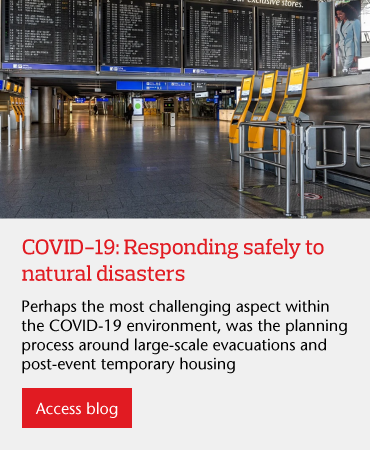
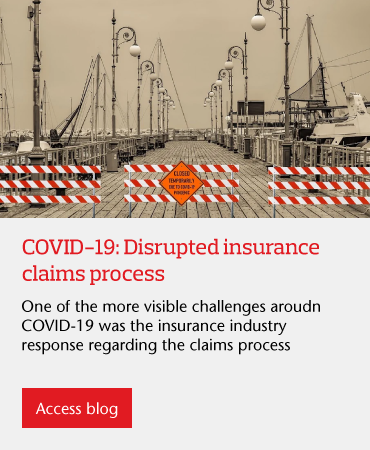
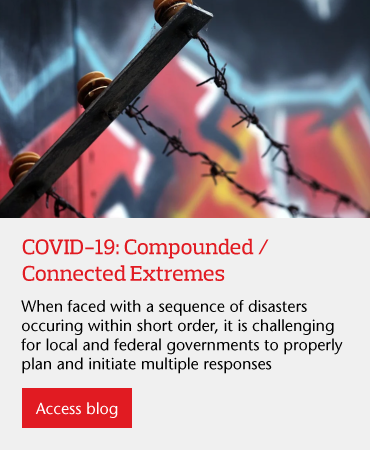
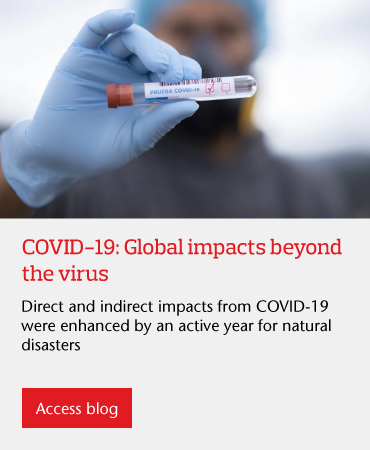
About the author
Steve Bowen currently serves as Director, Meteorologist, and the Global Head of Catastrophe Insight at Aon, and is based in the Impact Forecasting division. An increasingly important part of his work includes providing expertise to new strategies focused on combating the growing hazard, physical, societal, and financial challenges posed by climate change. He is a frequent collaborator with governmental agencies, academia, and industry groups, and has co-authored several published peer-reviewed scientific studies (including in the Bulletin of the American Meteorological Society, Nature Climate Change, and the Journal of Insurance Regulation). He was previously invited to participate in a White House initiative that sought to better prepare various sectors for emerging risks associated with climate change and extreme weather.
Steve serves on the Board of Directors for the American Red Cross of Illinois, and also sits on the Society of Actuary’s Research Executive Committee and Climate & Catastrophe Steering Committee.
